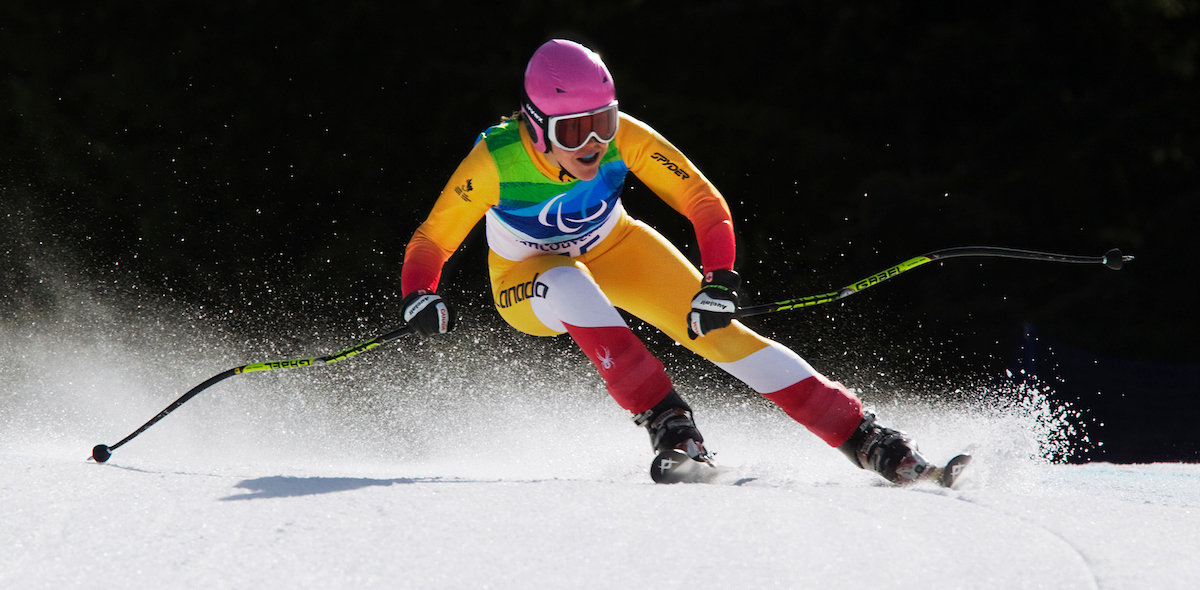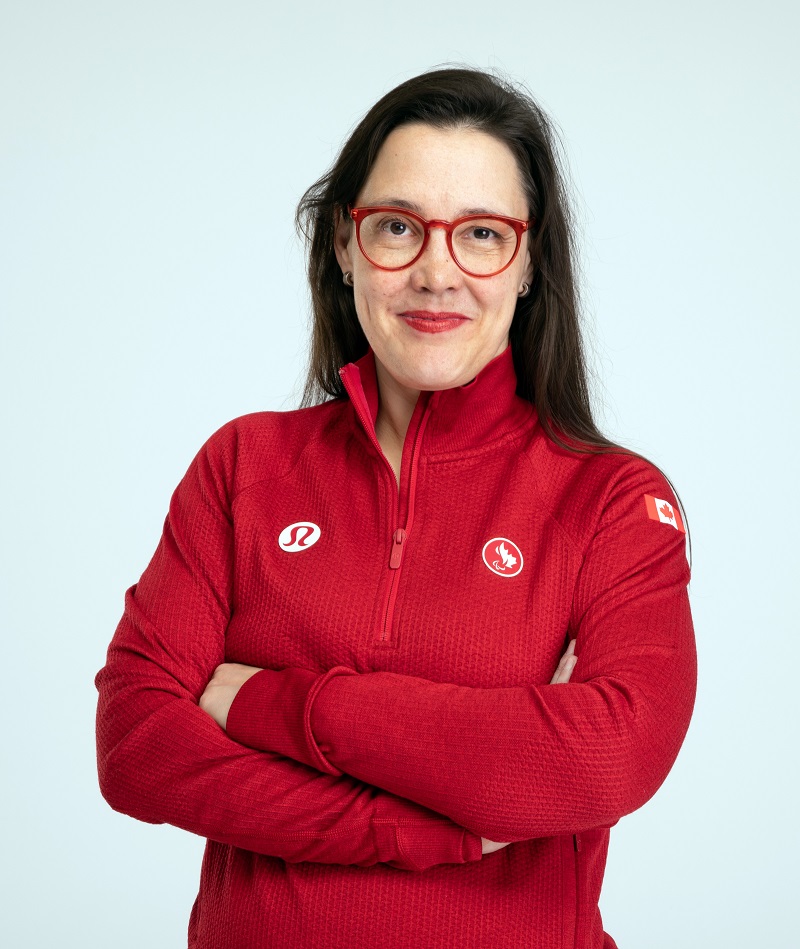

Birthdate
July 26, 1976
Hometown
Calgary, AB
Residence
Montreal, QC
Sport
Para alpine
Experience
Vancouver 2010
Karolina Wisniewska (who grew up in Calgary, but now lives in Montreal) is a three-time Paralympian and winner of eight Paralympic medals in Para alpine skiing. She won two silver medals in Nagano in 1998, two silver and two bronze medals in Salt Lake City in 2002, and two bronze at Vancouver 2010.
Wisniewska’s four medals at the Salt Lake City 2002 Paralympic Winter Games set a new record at the time as the first Canadian winter sport athlete to win four medals at a single Olympic or Paralympic Games. Over the course of her career, she also won dozens of medals across all Para alpine skiing disciplines on the World Cup tour, and won the overall World Cup title in 2003.
She started alpine skiing at age five as a form of physiotherapy for cerebral palsy and raced able-bodied skiers as a member of the Sunshine Ski Club in Banff, Alta. until age 18, when she decided to try racing against competitors with a disability. Her Para alpine skiing career took off from there – she swept the 1994 national championships in the standing category in all disciplines, was named to the Canadian Para Alpine Ski Team in 1995, and was crowned the 1996 World Champion in Super G in Austria.
She made her Paralympic debut at the Nagano 1998 Games in Japan, where she raced to silver in both the women’s standing Super G and giant slalom. She would go on to capture multiple podiums at the 2000 world championships in Switzerland before her record four-medal performance in Salt Lake City in 2002 – silver in slalom and giant slalom along with bronze in both downhill and Super G.
Wisniewska originally retired after a concussion in 2003. But with the 2010 Paralympic Winter Games set to take place on home soil, she made a comeback in 2007. She went on to compete at the 2009 world championships in Korea before making the Canadian team for Vancouver 2010, where she added two more medals to her impressive total – bronze in slalom and super combined. Her determination was greatly admired by her teammates and staff members who surrounded her throughout that time.
In 2007, ahead of her comeback, Wisniewska was honoured for her accomplishments with a place in the Canadian Ski Hall of Fame, the first Paralympian to receive this honour. She was inducted into the Canadian Paralympic Hall of Fame in 2017.
Wisniewska remains steadfastly passionate about growing Paralympic sport, and has continued to stay involved in sport and grow her leadership in the community since her retirement from competition in 2012. She has given back to her own sport, volunteering with youth skiers at national championships and at Carving the Future camps held by Alpine Canada. She has also participated in many different speaking engagements, mentorship opportunities, and events to help promote Paralympic sport.
She was the assistant chef de mission of the Canadian Paralympic Team for the Beijing 2022 Paralympic Winter Games, supporting chef de mission Josh Dueck and acting as an important part of the team’s leadership group. She also was an athlete mentor for Canada at both the 2006 and 2020 Paralympic Games.
In May 2023, she was named Canada’s co-chef de mission with Josh Vander Vies for the 2023 Parapan American Games in Santiago and the 2024 Paralympic Games in Paris. It is the first time Team Canada will have co-chefs.
Wisniewska is currently a manager with Game Plan, Canada’s total athlete wellness program, supporting Paralympians, Olympians, and national team athletes. She has a long and successful career working in sport and games management, as well as in the arts and museum sectors.
She holds a master’s degree with Distinction in the history of art from the University of Oxford, and an undergraduate degree in political science and history from McGill University.
NOTABLE INTERNATIONAL RESULTS
2010 Paralympic Games Slalom 3rd
2010 Paralympic Games Super combined 3rd
2002 Paralympic Games Slalom 2nd
2002 Paralympic Games Giant Slalom 2nd
2002 Paralympic Games Downhill 3rd
2002 Paralympic Games Super G 3rd
1998 Paralympic Games Giant Slalom 2nd
1998 Paralympic Games Super G 2nd
4
4
"*" indicates required fields